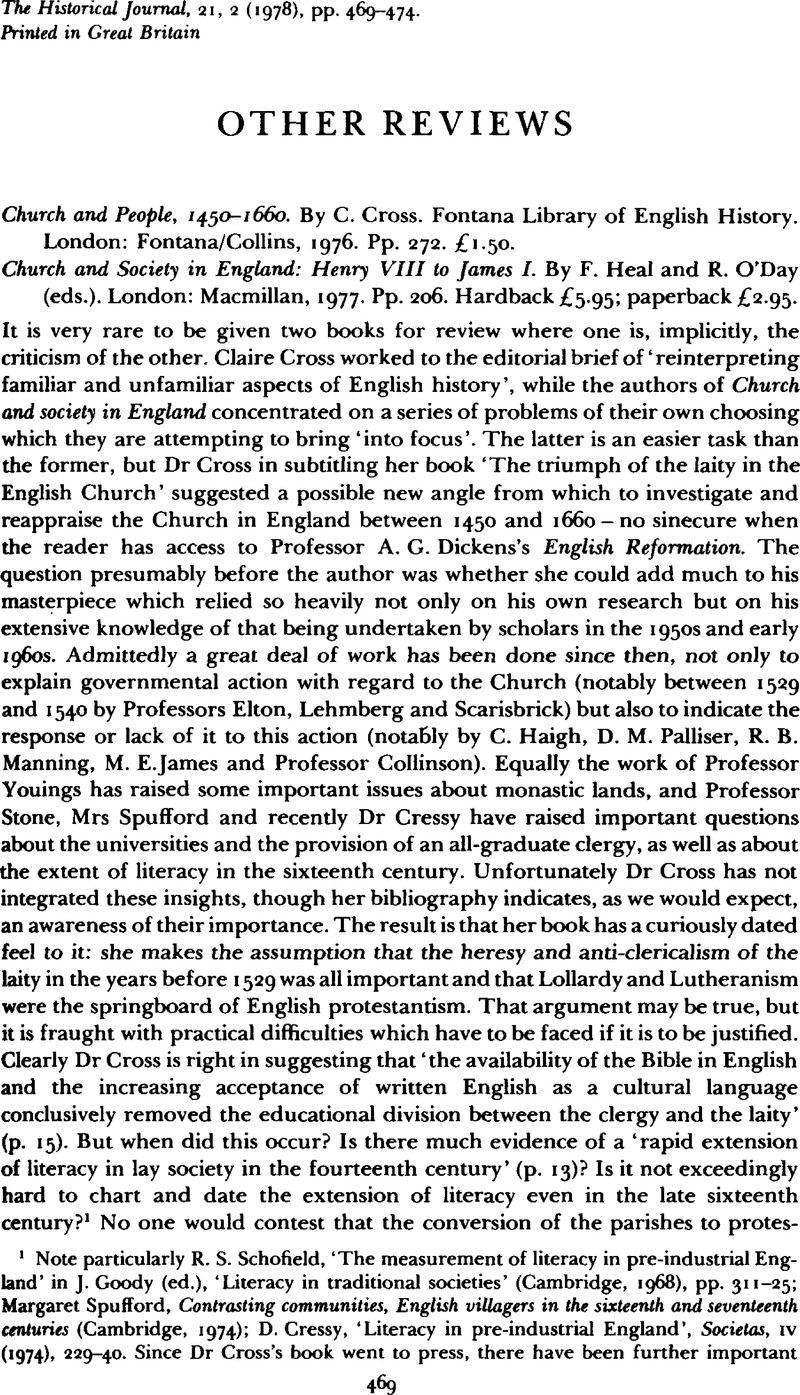No CrossRef data available.
Published online by Cambridge University Press: 11 February 2009

1 Note particularly Schofield, R. S., ‘The measurement of literacy in pre-industrial England’ in Goody, J. (ed.), ‘Literacy in traditional societies’ (Cambridge, 1968), pp. 311–25Google Scholar; Spufford, Margaret, Contrasting communities, English villagers in the sixteenth and seventeenth centuries (Cambridge, 1974)CrossRefGoogle Scholar; Cressy, D., ‘Literacy in pre-industrial England’, Societas, IV (1974), 229–40Google Scholar. Since Dr Cross's book went to press, there have been further important investigations of this theme, among them Cressy, D., ‘Levels of illiteracy in England 1530–1730’, Historical Journal, XX, 1 (1977), 1–23CrossRefGoogle Scholar; idem, ‘Educational opportunity in Tudor and Stuart England’, History of Education Quarterly, XVI, 3 (1976), 301–20.Google Scholar
2 In this connexion see especially, Haigh, C., Reformation and resistance in Tudor Lancashire (Cambridge, 1975), pp. 118–38Google Scholar; James, M. E., ‘Obedience and dissentin Henrician England: the Lincolnshire rebellion 1536’, Past and Present, no. 48 (1970), 3–78CrossRefGoogle Scholar; ‘The first earl of Cumberland (1493–1542) and the decline of northern feudalism’, Northern History, 1 (1966), 43–69CrossRefGoogle Scholar; Bowker, M., ‘Lincolnshire 1536: heresy, schism or religious discontent?’ in Baker, D. (ed.), Studies in Church history, IX (Cambridge, 1972), 195–212.Google Scholar
3 Fenlon, D., Heresy and obedience in Tridentine Italy: Cardinal Pole and the Counter Reformation (Cambridge, 1972), passim.Google Scholar
4 Elton, G. R., ‘Thomas Cromwell's decline and fall’ in Studies in Tudor and Stuart politics and government (Cambridge, 1974), 1, 189–230CrossRefGoogle Scholar; Reform and renewal (Cambridge, 1973), pp. 1–65.Google Scholar
5 Krautz, A. P., ‘The selection of Jacobean bishops’, in Reinmuch, H. S. (ed.), Early Stuart studies: essays in honour of D. H. Willson (Minneapolis, 1970), pp. 152–79.Google Scholar